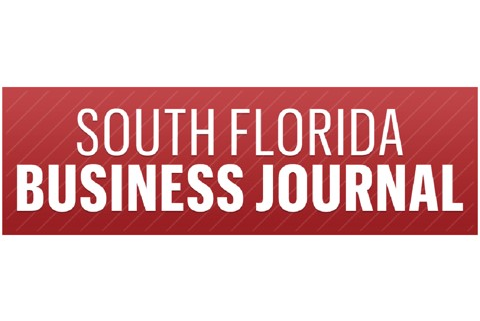Startup funding will be more competitive after Silicon Valley Bank collapse
By Ashley Portero
March 14, 2023
Raising money for a startup can be challenging in the best environment.
But founders should expect more competition than ever after the failure of Silicon Valley Bank.
The California bank was a major player in the technology and venture capital industry before it was seized by federal regulators last week. The bank’s failure — the second largest in U.S. history — reverberated across South Florida’s startup scene and sent founders scrambling to secure funds for payroll and other expenses.
Silicon Valley Bank, which opened a branch in the Brickell Financial District last year, worked with a number of local ventures, including medical tech firm Neocis and elder tech startup Papa. It also signed on as a partner of the eMerge Americas conference, a global technology conference taking place in Miami Beach next month.
It’s unclear if the bank failure will delay or impact the eMerge conference. A representative did not respond to a request for comment.
Miami-based Papa had minimal exposure to the bank collapse, a spokesperson told Miami Inno. A majority of the startup’s funds are held at another bank.
On Monday U.S. regulators said it would insure all of the deposits at the Silicon Valley Bank in a move to promote confidence in the nation’s banking system. Under the plan all depositors, even those whose holdings exceed the $250,000 insurance limit, can access their funds. The government stressed the deposits will not be covered by taxpayers, but will come from a $100 billion fund set up after the 2008 financial crisis.
Several startups affiliated with accelerator Endeavor Miami were depositors at Silicon Valley Bank, said Managing Director Claudia Duran. The news that deposits would be covered was a relief, but she is still advising founders to monitor their costs and prepare for a challenging funding environment.
“They should reach out to their current investors if they need funding or ensure that their financials are in order before pitching their business to potential investors,” Duran said.
Four of Fuel Venture Capital’s 33 portfolio companies had exposure to Silicon Valley Bank, said Managing Partner Maggie Vo. The Miami-based venture capital firm has been in communication with those businesses to come up with contingency plans, if needed. So far, none of the companies are at financial risk. However, the firm is advising those businesses to forecast their minimum cash requirements as a precaution.
Vo said being headquartered in Miami is a factor that reduced the firm’s exposure to the bank failure.
“Most founders in Miami have a relationship with SVB but it’s not the only bank that companies turn to,” she said. “You’ll find a little bit more diversity by nature because we’re here.”
Entrepreneurs should remember that investors are going to be hyper-focused on minimizing risk. Founders should be in frequent communication with their current investors and focus on highlighting the value proposition of their product to customers.
“This will test the founders and their ability to bounce back and be resilient during tough times,” Vo said. “This is a factor investors will look into before backing a company.”
James Cassel, chairman and co-founder of Miami-based investment banking firm Cassel Salpeter & Co., said it was too soon to know what the long-term impact could be for the region’s tech economy. As of now, it’s unclear how many local companies had relationships with Silicon Valley Bank.
“A large part of the fallout may be based on the psychological effect of the collapse,” he said. “Keep in mind that before the last few days, tech companies and biotech companies were already in a challenging environment to raise capital.”
At the end of the day, great companies will always stand out, said Florida Funders Partner Saxon Baum.
He expects other debt providers will eventually emerge to replace Silicon Valley Bank and become larger players in the state’s tech ecosystem. Fewer checks may be written, but the capital is still there to back innovative ventures.
“I think that the best founders and their companies will still be effective in raising money,” he said.
For more stories like this one, sign up for Miami Inno newsletters from the South Florida Business Journal and the American Inno network.
Click here to read the PDF.
Click here to read the full article.




